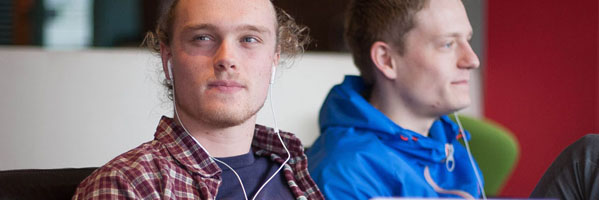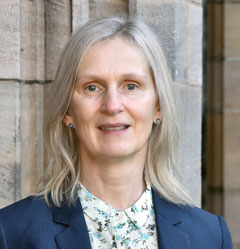7 December 2020
Building Resilient Communities: COVID-19 and beyond!

Author
Ruth Taylor
Vice-Principal (Education), University of Aberdeen
I returned to Scotland having spent around seven years away and was quickly reminded about why I love working here. I would define our approach as collaborative, creative, collegiate, compassionate, evidence-based, and innovative. It is just brilliant to be back and working with colleagues nationally. And I am particularly delighted to be deputy chair of the new Enhancement Theme, ‘Resilient Learning Communities’. More of that later.
The Conference
The Scottish higher education sector came together in November for its 5th International Enhancement Themes Conference, Building Resilient Learning Communities: Using Evidence to Support Student Success, and what a conference it was! For those of you who would like to, you can access recordings of every plenary session from the conference and a selection of papers, blogs and pre-recorded presentations on the Enhancement Themes website. There is much to be learnt, and much to be celebrated, from across the sector around the three themes of the event:
- Evidence-based decision-making
- Equality, diversity and inclusion in our learning communities
- Employability for a changed world
A few reflections on some of my personal highlights:
Ben Williamson (University of Edinburgh) offered insights into the use of digital data and the decisions we will need to take post-pandemic about how we transform our learning environments. He drew on Paul Ashwin’s book by identifying the need to inculcate a sense of the transformational purpose of an undergraduate degree, asking us to think again about the meaning of, and students’ engagement with, higher education.
Maha Bali (American University Cairo) posed crucial questions about how we ensure parity of participation so that marginal voices are properly included within spaces that are truly co-created. She told us that enhancing people’s capability so that they can fully participate, enables better sector-wide decision-making. Her focus on compassion as an act of caring for students through the process of transformation was particularly powerful for me.
A session titled ‘Learning-by-doing in the Creative Destruction Lab’ with Professor Ajay Agrawal (University of Toronto) demonstrated what can be done when there is commitment, vision, connections and networks, and resources for initiatives such as, in this case, an entrepreneurial experience for students. I highly recommend accessing this keynote if this is an area that you are working on.
People, Relevance, Resilience
It was a great privilege to chair the final session of the conference where we had an excellent panel discussion – available to view on the Enhancement Themes website. What was striking about it was the focus on people – not simply what we are doing but how we are doing it. We were urged to stay positive in the face of the current challenges, and really think about how we connect with students and staff. As James Dunphy (Scottish Funding Council) put it, ‘The future is undoubtedly human’. And Professor Sally Mapstone (University of St Andrews) – ‘stay humane’.
I asked the panel what ‘relevance’ in higher education means for the sector. Again, the spotlight was on the connectivity of people and the thinking that comes from that interconnectedness, with Sir Paul Grice (Queen Margaret University) advocating the creation of connected spaces for purposeful opportunities for ‘deep thinking and collaboration’. Sally’s views on how we can stay relevant included the need for us to take risks – yes, educated and informed risks but ones that we agree together so that we can transform our education.
The sector’s resilience in the midst of the immense development and ongoing flexibility that the higher education workforce has demonstrated in recent months was discussed. Alex Hedlund (Heriot-Watt University Student Union) told us, '[The sector has] achieved so much in terms of upskilling and reskilling staff in an incredibly short time, and we should recognise just how hard we have all worked.' That recognition is hugely important. And the work of the new Enhancement Theme has the opportunity to focus on resilient learning communities for our staff as well as, of course, our students.
Resilient Learning Communities
The conference created an environment where we discussed many of the challenges and opportunities that lie ahead and that will be addressed through the new Enhancement Theme in 2021 and beyond. My favourite quote of the event came from Matt Crilly who evoked a whole set of emotions and activities that have been the hallmark of the past few months: ‘We are living through the wildest of times!’ Yes, I think we are. But we have tamed some of that wildness through our creativity, innovation and sheer determination to make sure that together we can offer the best possible student experience. The new Enhancement Theme offers us the chance to respond to some high-level questions:
- Who are our students?
- How do they learn?
- How can we support our communities?
I am excited to understand more about what each university will choose to do with this Theme. We want to support the sector to make a difference now, and to make a difference for the future of higher education as it emerges from this pandemic. The pandemic has brought a number of areas into prominence - something that we will all have noticed I am sure. Areas such as the mental health and wellbeing of staff, for example. The opportunity to act and make the positive change sustainable is exciting, and to grasp some of these prominent issues that have come to the fore throughout recent months: so that we can really say that we haven’t wasted a good crisis!
